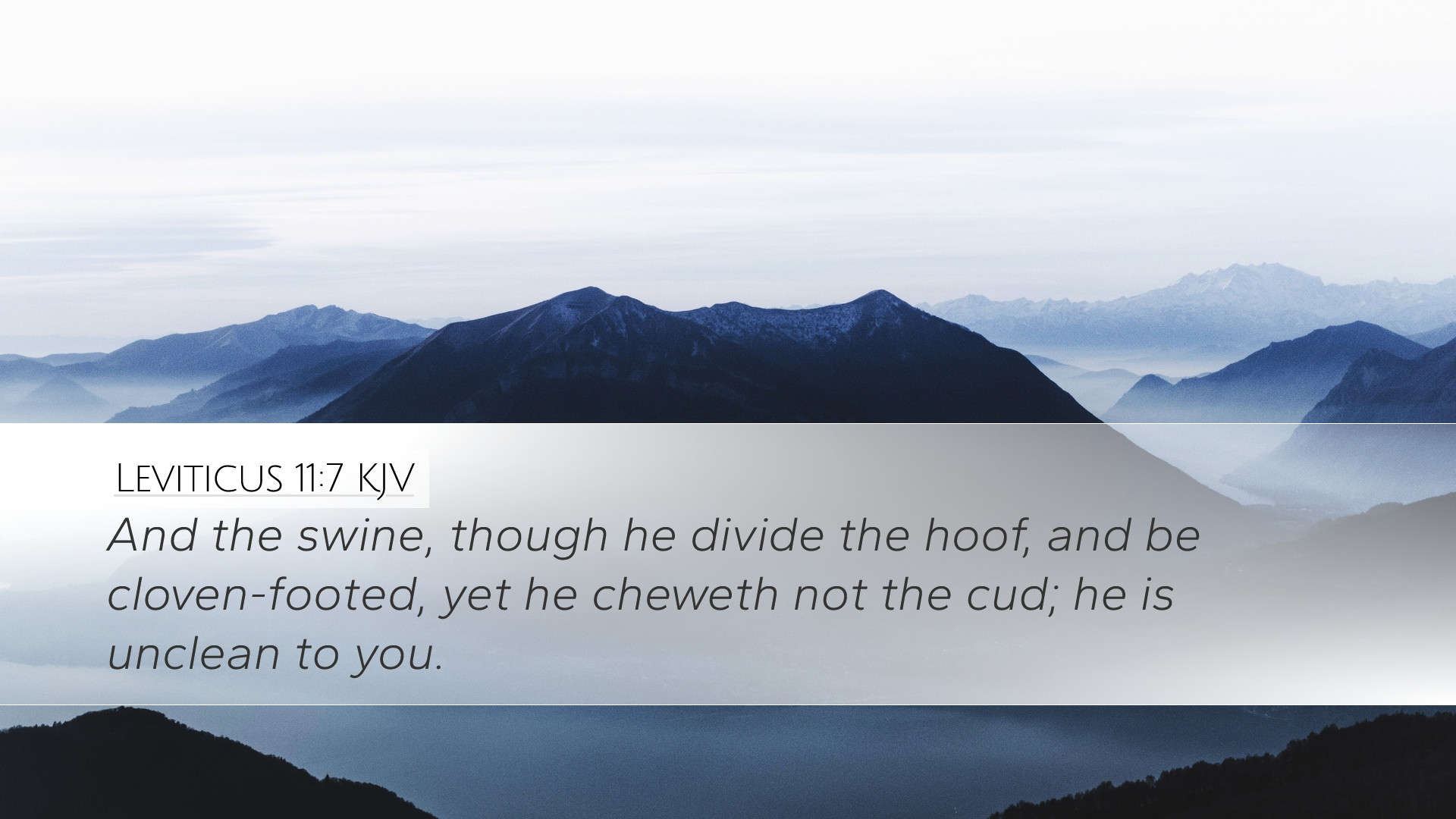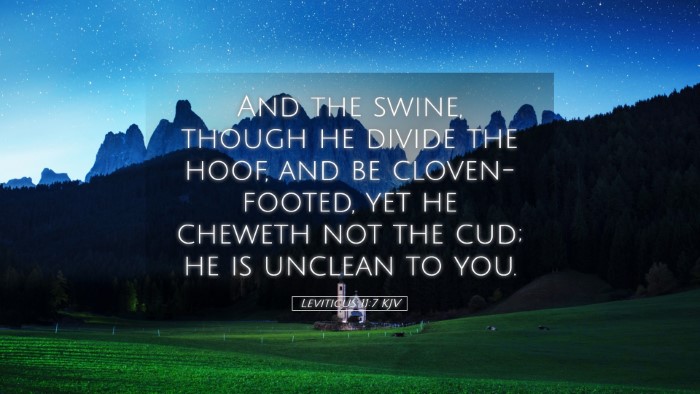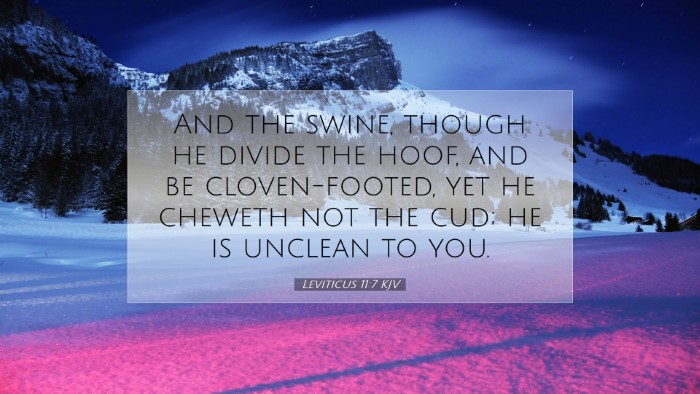Commentary on Leviticus 11:7
Leviticus 11:7 states, "And the swine, though he divide the hoof, and be cloven-footed, yet he cheweth not the cud; he is unclean to you." This verse presents one of the dietary laws given to the Israelites, detailing which animals were permissible to eat and which were not. In understanding this verse, we can draw insights from various public domain commentaries.
Contextual Understanding
To grasp the significance of this prohibition, it's important to recognize the cultural and religious context of ancient Israel. The dietary laws were not arbitrary but rather served to cultivate a distinct identity for the Israelites among neighboring nations.
- Identity and Holiness: The dietary laws, including the prohibition against swine, underscore the concept of holiness. Matthew Henry comments that these laws were intended to keep the people separate and distinct from others, emphasizing their unique relationship with God.
- Differentiation of the Clean and Unclean: The laws concerning clean and unclean animals serve to illustrate the broader theme of holiness in Israel's community life. Albert Barnes notes that such distinctions were critical in helping Israelites to vividify the concept of purity and moral cleanliness.
Symbolism of the Swine
The swine, though it possesses a cloven hoof, symbolizes a duality of appearance versus reality. Adam Clarke elucidates the idea that while the swine might appear acceptable on one front (due to its hoof), it fails the criterion of being a ruminant, thus rendering it unclean. This teaches a powerful lesson about the importance of both outward appearances and inner qualities, which parallels other biblical teachings regarding hypocrisy.
Spiritual Implications
The spiritual implications of this dietary restriction extend beyond mere physical consumption. The principle calls attention to the idea of spiritual alertness and discernment:
- Discerning what is Clean: Just as one must discern between clean and unclean creatures, believers are called to discern between good and evil in their spiritual lives. Matthew Henry posits that Christians today should also be vigilant in identifying what aligns with God's nature.
- Holiness in Lifestyle: The theme of holiness woven through these laws reminds Christians to live lives that reflect their calling. Albert Barnes encourages believers to strive for purity, both in what they consume metaphorically and in their spiritual practices.
The Role of the Law
Furthermore, the law regarding the swine points to the broader theological principle of the law as a guide for life. It serves to educate and inform the Israelites about God’s standards:
- Guidance for Righteous Living: Adam Clarke writes that these laws were beneficial, providing guidelines that would help the Israelites stay pure and focused on their covenant with God.
- Type and Shadow: Some theologians argue that dietary restrictions can be seen as a 'type' pointing toward Christ, who fulfills the law (Matthew 5:17). Thus, the understanding of what is 'unclean' takes on deeper significance in the light of Christ’s redemptive work.
Application for Today
While the specific dietary restrictions of Leviticus may not apply to modern Christians, the underlying principles remain relevant:
- Fostering Distinction: Christians are called to be a peculiar people, distinct in their behavior and beliefs. The call to holiness remains ever pertinent, reminding believers to reflect Christ's character in their everyday lives.
- Commitment to God’s Standards: The structure of God’s law encourages believers to uphold moral integrity and base decisions upon biblical truths, as opposed to societal norms that might embrace 'unclean' practices.
Conclusion
In summary, Leviticus 11:7 serves not only as a dietary law for the ancient Israelites but also as a profound lesson in discernment, holiness, and the pursuit of a life that aligns with God's standards. The insights from Matthew Henry, Albert Barnes, and Adam Clarke collectively enrich our understanding of not just what it means to be clean or unclean, but also what it means to aspire to a life of holiness in all areas. As modern readers explore these ancient texts, the call to remain set apart for God's purposes remains as vital today as it was in the days of Moses.


